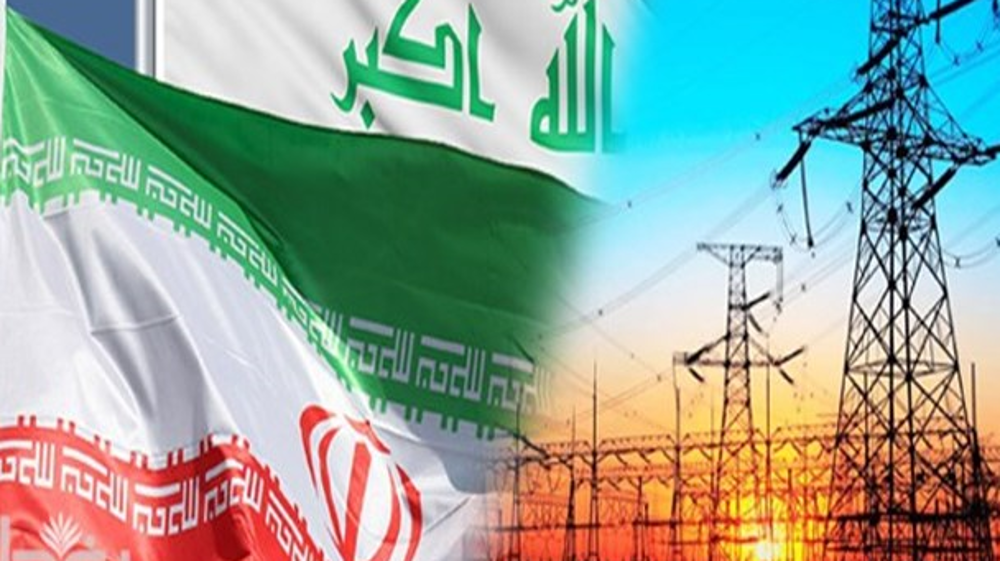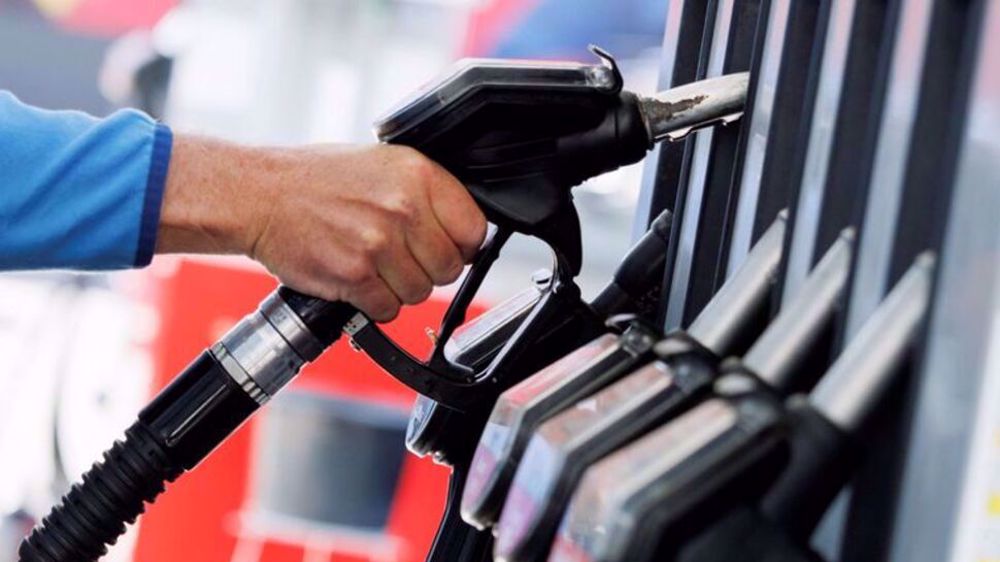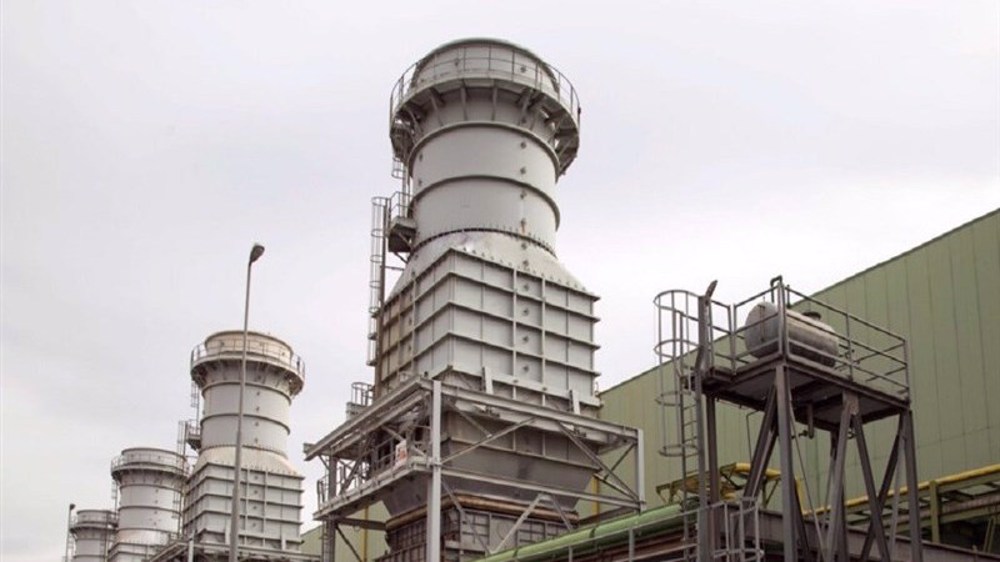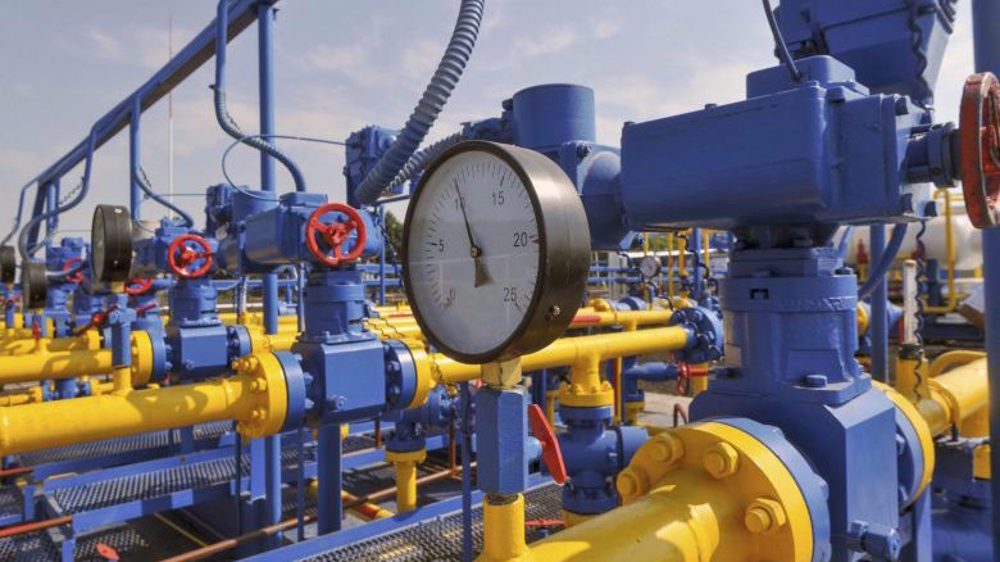Minister: Iran, Iraq sign long-term ‘strategic’ energy contract
Iran has signed a long-term strategic electricity contract with Iraq to provide its Arab neighbor with sustainable energy supplies, Iranian Minister of Energy Ali Akbar Mehrabian has said.
The Islamic Republic is already a key energy provider to Iraq which faces chronic electricity shortages despite sitting on the world’s fourth largest oil reserves.
“Given that we are facing a surplus of electricity production in the country at many times of the year, we pursue the development of energy diplomacy centered on electricity with neighbors in order to both solve their problems and create a stable flow of income and use the maximum capacity of our electricity network,” Iranian media on Wednesday quoted Mehrabian as saying.
The minister touched on Iran's self-sufficiency in the technical knowledge of power plant construction, saying so far the construction of 1,950 megawatts of power plants has been implemented by Iranian companies with the investment of the Iraqi side.
The knowledge-based companies of Iran’s private sector are also implementing the construction of 1,700 megawatts of power plants in Iraq, he added.
The conclusion of long-term strategic contracts in the electricity sector has been one of the centerpieces of the Iranian government's “dynamic regional diplomacy which has brought brilliant results for the country”, the minister said.
“In this regard, we prepared the ground for the first long-term cooperation in the electricity sector with Iraq, and signed an important and strategic contract with the country,” he added.
Mehrabian cited international reports, saying that the largest electricity production and distribution capacity among the West Asian countries belongs to Iran.
“Despite the slowdown in the development of the electricity industry in the past years, “Iran is still considered the most powerful electricity country in the region, whose record-breaking increase in power plant capacity this year will continue,” he said.
“Iran's power in the field of electricity is not merely limited to the installed capacity of power plants. Due to the expansion of local knowledge, we are not only one of the few self-sufficient countries in the world in the fields of construction, upgrading, repairs and maintenance of power plant units, but we have significant exports of various types of engineering services in the field of electricity.”
The agreement comes amid unilateral US sanctions reimposed on Iran since 2018, which forbid countries from purchasing Iranian energy.
It also comes after Iraqi authorities announced on Saturday the signing of a deal with Saudi Arabia for connecting their electricity grids.
Saudi media widely touted the agreement as a step in helping Iraq with its electricity woes and reducing energy dependence on Iran.
Iraq relies on Iran for natural gas that generates as much as 45 percent of its 14,000 megawatts of electricity consumed daily. Iran transmits another 1,000 megawatts directly, making itself an indispensable energy source for its Arab neighbor.
The US has had to repeatedly extend sanctions exemption by 45, 90 or 120 days, to allow Baghdad to import Iranian energy, but it is unhappy with close relationship and trade between Baghdad and Tehran.
Years of war following the 2003 US invasion have left Iraq’s power infrastructure in tatters and a deficit of some 7,000 megawatts.
In the past, officials in Baghdad have said there is no easy substitute to imports from Iran because it would take years to adequately build up Iraq’s energy infrastructure.
They have said American demand acknowledges neither Iraq’s energy needs nor the complex relations between Baghdad and Tehran.
Iraq also imports a wide range of goods from Iran, including food, agricultural products, home appliances, air conditioners and car parts.
In April, Iraqi Electricity Minister Adel Karim described gas imports from neighboring Iran as suitable and inexpensive, saying his country “will need Iranian gas for years”.
Karim touched on the fact that the cost of connecting Iraq’s electricity grid to those of the Persian Gulf Arab countries was “very high”.
He cited three agreements with Qatar, Turkey, and Saudi Arabia, saying that Iraq had not yet reached a consensus with the trio, especially the Arab countries, on energy prices.
“We do not agree with their price,” he said, referring to the Persian Gulf Arab states. “The Iranian gas is suitable for Iraq and its price is acceptable. We will need Iranian gas for years.”
VIDEO | 70 Palestinians killed in Israeli strikes across Gaza Strip
US Election Day: First votes cast in New Hampshire
Nov. 4: ‘Axis of Resistance’ operations against Israeli occupation
Britons demand release of pro-Palestine activists
VIDEO | Israel's unwinnable war in Lebanon
Non-aligned nations condemn Israeli violation of Iran's sovereignty
IRGC: 10 foreign-backed terrorists killed, arrested in Sistan and Baluchestan
Iran calls on EU to end targeting ordinary Iranians after missile transfer claims refuted










 This makes it easy to access the Press TV website
This makes it easy to access the Press TV website